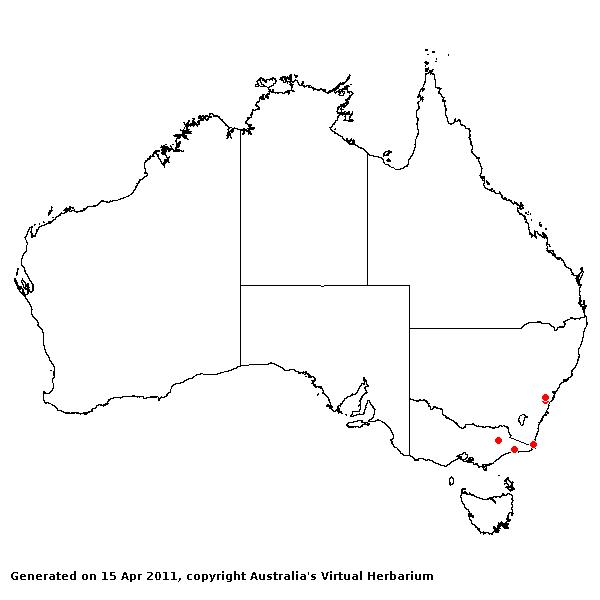Deyeuxia microseta Vickery. Contr. New South Wales Natl. Herb. 1: 66 (1940).
Classification. (GPWG 2001) : Subfamily Pooideae. Tribe Poeae.
Type of Basionym or Protologue Information: Australia, Blue Mts., Wentworth Falls: Vickery K33 (K holo, NSW).
Key references (books and floras): [2002] D.Sharp & B.K.Simon, AusGrass, Grasses of Australia, [2008] S.W.L.Jacobs, R.D.B.Walley & D.J.B.Wheeler, Grasses of New South Wales (203), [2009] A.Wilson (ed.). Flora of Australia, Vol 44A. Poaceae 2 (204).
Illustrations: [2008] S.W.L.Jacobs, R.D.B.Whalley & D.J.B.Wheeler, Grasses of New South Wales, 4th edn (204).
Habit. Perennial. Culms erect, stature slender to delicate, 40–120 cm tall, 3–4 -noded. Mid-culm nodes glabrous. Lateral branches simple. Leaves mostly basal. Leaf-sheaths scaberulous. Ligule an eciliate membrane, 3–4 mm long, membranous, abaxially hairy, lacerate, obtuse. Leaf-blades linear, flat, 5–20 cm long, 1.5–5 mm wide. Leaf-blade surface smooth or scabrous, glabrous.
Inflorescence. Inflorescence compound, a panicle. Panicle linear or elliptic or oblong, loose, 2.5–16 cm long.
Spikelets. Spikelets pedicelled. Fertile spikelets 1-flowered, comprising 1 fertile floret(s), with a barren rachilla extension, lanceolate, laterally compressed, 3.5–5 mm long.
Glumes. Glumes similar, firmer than fertile lemma. Lower glume lanceolate, membranous, much thinner on margins, keeled, 1-keeled, 1 -nerved. Upper glume lanceolate, 3.5–4 mm long, membranous, keeled, 1-keeled, 1 -nerved. Upper glume surface asperulous.
Florets. Fertile lemma 3–3.5 mm long, without keel, 3–5 -nerved. Lemma apex awned, 1 -awned. Median (principal) awn subapical, 0.5–1 mm long overall. Lodicules present. Anthers 3. Grain 2 mm long.
Continental Distribution: Australasia.
Australian Distribution: New South Wales.
New South Wales: Central Tablelands.
Notes. Endemic. In wetter areas of montane sclerophyll forest. Flowers spring.




